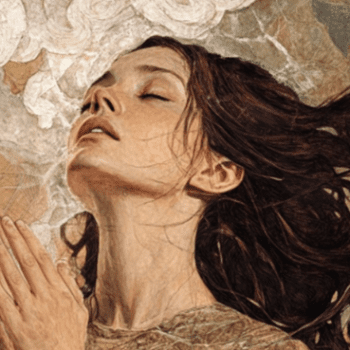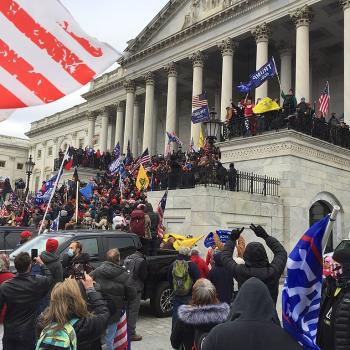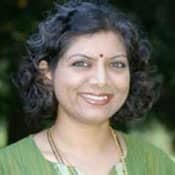Last week, I was honored to welcome the members of my community to the annual event celebrating the life and legacy of Dr. Martin Luther King, Jr. My words of welcome included references to Gandhi, and ahimsa, the underpinnings of the civil disobedience he—and later MLK Jr.—inspired. As I invited the attendees to join me in a symbolic unity walk around the high school in which the program is held, I called upon two high school seniors to join me. Zack Kilgore and Skye Curtis have taken on a new issue that has recently brought our city into the national eye. On MLK Jr. Day, I felt I should share my honor with them, since we share a common goal: we are calling upon our neighbors to look at things from more than one limited perspective.
For over ten years, I have been trying to build bridges of unity and understanding here in Troy, and around metro-Detroit. A significant incident in 2005 brought the challenges the city faces from religious diversity into prominence: controversy over the National Day of Prayer that I was a catalyst in creating, when I was a member of the City's now-disbanded Ethnic Issues Advisory Board. As a member of the Bharatiya Temple's Outreach Committee, a founding member of the Troy-area Interfaith Group, and through participation in other organizations and activities, I have stayed the course over the last seven years. My ongoing commitment to regional and national interfaith work has been a critical part of my life, my family's life, and many (often difficult) conversations I am involved in, both in Troy and beyond. These two teenagers and many others in our community are also walking what I call the path of dharma, in seeking just and harmonious solutions to issues that separate or divide us, building that Beloved Community that King spoke of.
Dharma is a very difficult word to explain, and is the word that my father used to refer to the faith that we practice—Sanatana Dharma, the Eternal Dharma. Dharma, a Sanskrit word, is defined in one of the most referenced Sanskrit-English dictionaries by V. S. Apte, with many meanings, just the first ten being: 1) religion; 2) law; 3) religious or moral merit (regarded as one of the four ends of human existence); 4) duty; 5) right; 6) piety; 7) morality; 8) nature; 9) an essential quality; 10) manner. The root word of dharma, dharayati, means "to hold, maintain or support." I found the Wikipedia entry quite appropriate, as it states that dharma is "that which upholds, supports or maintains the regulatory order of the universe." (Thank goodness for Wikipedia!)
Dharma is taught to most of us in the Hindu tradition through the stories of Rama, the princely avatar of Vishnu, who lived his life following the path of dharma: the Hindu kavya or epic Ramayana is full of his deeds of strength, character, and courage. He was famed for fulfilling his responsibilities, as son to King Dasaratha, as husband of Sita, as brother of Lakshmana, and to all he came in contact with. A particular anecdote has been popular for thousands of years, in illustrating not only Rama's dharma, but also his filial obedience: As the eldest of four sons, Rama was about to be crowned king. His father unexpectedly had to fulfill promises he had made earlier: he was forced to decree that Rama be banished from the kingdom for fourteen years, and crown Rama's youngest brother instead. The king, being a man of dharma, followed through on this, (even though personally, he was devastated), and ordered Rama's banishment. Rama was unruffled by the exile to the Dandaka forest, and the required change from royal life to ascetic, and accepted the decree unquestioningly.
Throughout the Ramayana, Rama's trials and tribulations illustrate both the difficulty of traveling the path of dharma, and the discipline needed to stay the course. I, like many Hindus, take Rama as an example. This last decade of activism to build the Beloved Community has come with many challenges, and I continue to seek ways to "stay on message," to do what is just, to uphold what is right. I nurture friendships with those who have similar values—such as the teens I mention above, and Rev. Rich Peacock, a retired United Methodist minister who was key to the formation of the Troy-area Interfaith Group. His belief in social justice and peacemaking is inspired by Jesus' Sermon on the Mount, and how the prophets talk about justice—and he has inspired me. He reminds me that "turning the other cheek" is much like Gandhi's ahimsa; it doesn't mean to flee, but to stay within striking distance for the sake of dialog, even when the conversations are uncomfortable. And in staying true to the course of activism that I have chosen, I am glad to have people on the path of dharma before, after, and especially with me.
1/26/2012 5:00:00 AM





